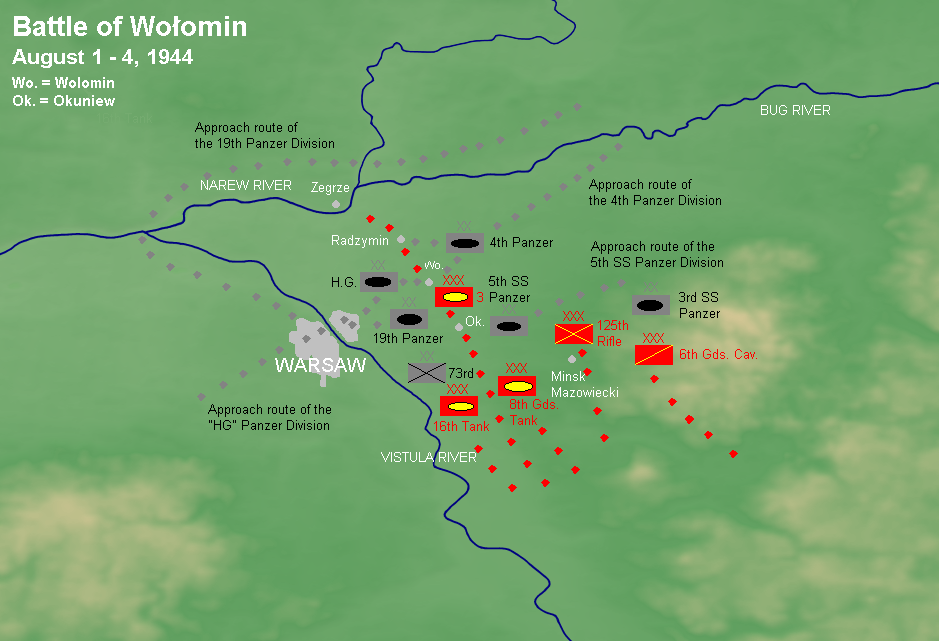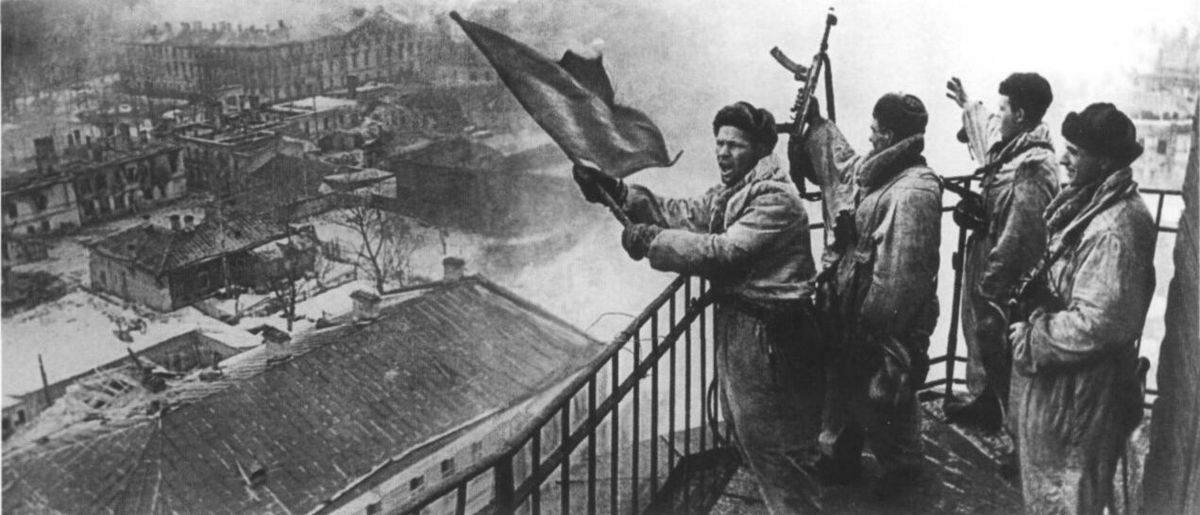sillygoose
Well-known member
POD: von Kluge avoids his car accident in October 1943 and stays in command of AG-Center. General Busch never takes command.
IOTL the fighting through 1943 into 1944 around Smolensk and in Belarus was extremely heavy and brutal, so much so that the Soviets largely didn't talk about it because of how many casualties they suffered for very little gain. During this period von Kluge had to fight both Hitler and the Soviets and due to his leadership (and Soviet mistakes) his army group managed to hang on by their fingernails, but it was clear that disaster was looming especially once the Soviets advanced so far in Ukraine that their southern flank was turned and stretched their front line beyond their ability to really hold, which resulted in the disaster during Bagration in summer of 1944.
However there were options to prevent that disaster, specifically withdrawing from exposed positions before the offensive, which they knew was coming, just not in as much force as actually was present. A big part of the problem for the Germans was Ernst Busch was in command by 1944 as a result of von Kluge suffering a bad car accident during the heavy battles of October 1943. Von Kluge was willing to stand up to Hitler and withdraw when necessary, but Busch was willing to carry out Hitler's orders to the letter, no matter what. Even though Busch knew they were waiting for disaster to befall the army group he stayed in place and let the disaster happen.
So what if von Kluge was still in command by the time Bagration rolls around and realizing how insane it would be to simply stand and die he withdraws his forces a relatively short distance right before the Soviet offensive is unleashed to derail it?
Orsha and Vitebsk were east of river lines and could have been easily abandoned, which would have shortened the line considerably, anchored the line on the Dniepr river barrier, and saved a large amount of men, equipment, and supplies while then forcing the Soviets to advance to get to the next line, which not only negated their artillery preparations, but also drew them forward into a relatively blind zone where they would hit prepared defenses without any preparations to deal with them. It would also help the Germans create a reserve and allow for a series of phased withdrawals back to the series of river lines behind the front when the pressure became too great.
In doing so the Minsk pocket couldn't be formed and enough reserves would exist to stop the Bobruysk pocket from being formed, allowing withdrawals of units intact behind river lines. That allows AG-Center then to stage a fighting withdrawal in conjunction with AG-North out of Belarus and Estonia without major units getting pocketed or overrun, wears down Soviet units, and keeps the line intact without AG-North getting isolated as well as reduces the length of the line by 50% and removes a lot of partisans in the rear areas and shortens supply lines. Not only that, but it eliminates the need to transfer panzer divisions and Gen. Model away from AG-North Ukraine right before the Soviet offensive against Lwow, which in turn allows them to perform quite a bit better.
Instead of being virtually destroyed and suffering 400,000 casualties AG-Center suffers about ~150,000 casualties, only loses a few divisions, and manages to avoid losing lots of equipment and prisoners/KIA/MIA. They end up holding a relatively straight line from north to south from Daugapils to a line east of Minsk and running south to a point west of Pinsk:
AG-North holds a line from Riga-Daugapils. Despite the losses the shortening of the front line actually would then increase the density of troops available to hold the line, which is now anchored on several large rivers, while delaying any future Soviet offensive in these areas for quite some time. It also frees up resources to be fed into AG-North Ukraine instead of AG-Center/North. I'd imagine Hitler would fire von Kluge ASAP when he finds out that Kluge retreated without orders.
How would this impact the rest of the war if the Soviets summer offensives of 1944 are nowhere near as successful, but are nearly as costly while the German armies remained intact and further east?
IOTL the fighting through 1943 into 1944 around Smolensk and in Belarus was extremely heavy and brutal, so much so that the Soviets largely didn't talk about it because of how many casualties they suffered for very little gain. During this period von Kluge had to fight both Hitler and the Soviets and due to his leadership (and Soviet mistakes) his army group managed to hang on by their fingernails, but it was clear that disaster was looming especially once the Soviets advanced so far in Ukraine that their southern flank was turned and stretched their front line beyond their ability to really hold, which resulted in the disaster during Bagration in summer of 1944.
However there were options to prevent that disaster, specifically withdrawing from exposed positions before the offensive, which they knew was coming, just not in as much force as actually was present. A big part of the problem for the Germans was Ernst Busch was in command by 1944 as a result of von Kluge suffering a bad car accident during the heavy battles of October 1943. Von Kluge was willing to stand up to Hitler and withdraw when necessary, but Busch was willing to carry out Hitler's orders to the letter, no matter what. Even though Busch knew they were waiting for disaster to befall the army group he stayed in place and let the disaster happen.
So what if von Kluge was still in command by the time Bagration rolls around and realizing how insane it would be to simply stand and die he withdraws his forces a relatively short distance right before the Soviet offensive is unleashed to derail it?
Orsha and Vitebsk were east of river lines and could have been easily abandoned, which would have shortened the line considerably, anchored the line on the Dniepr river barrier, and saved a large amount of men, equipment, and supplies while then forcing the Soviets to advance to get to the next line, which not only negated their artillery preparations, but also drew them forward into a relatively blind zone where they would hit prepared defenses without any preparations to deal with them. It would also help the Germans create a reserve and allow for a series of phased withdrawals back to the series of river lines behind the front when the pressure became too great.
In doing so the Minsk pocket couldn't be formed and enough reserves would exist to stop the Bobruysk pocket from being formed, allowing withdrawals of units intact behind river lines. That allows AG-Center then to stage a fighting withdrawal in conjunction with AG-North out of Belarus and Estonia without major units getting pocketed or overrun, wears down Soviet units, and keeps the line intact without AG-North getting isolated as well as reduces the length of the line by 50% and removes a lot of partisans in the rear areas and shortens supply lines. Not only that, but it eliminates the need to transfer panzer divisions and Gen. Model away from AG-North Ukraine right before the Soviet offensive against Lwow, which in turn allows them to perform quite a bit better.
Instead of being virtually destroyed and suffering 400,000 casualties AG-Center suffers about ~150,000 casualties, only loses a few divisions, and manages to avoid losing lots of equipment and prisoners/KIA/MIA. They end up holding a relatively straight line from north to south from Daugapils to a line east of Minsk and running south to a point west of Pinsk:
AG-North holds a line from Riga-Daugapils. Despite the losses the shortening of the front line actually would then increase the density of troops available to hold the line, which is now anchored on several large rivers, while delaying any future Soviet offensive in these areas for quite some time. It also frees up resources to be fed into AG-North Ukraine instead of AG-Center/North. I'd imagine Hitler would fire von Kluge ASAP when he finds out that Kluge retreated without orders.
How would this impact the rest of the war if the Soviets summer offensives of 1944 are nowhere near as successful, but are nearly as costly while the German armies remained intact and further east?










